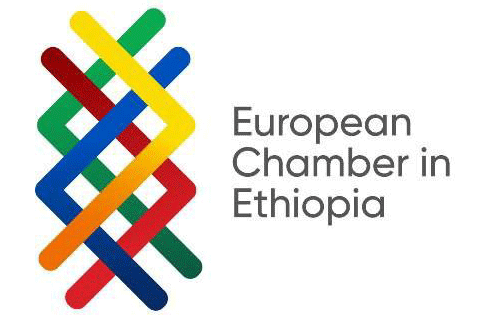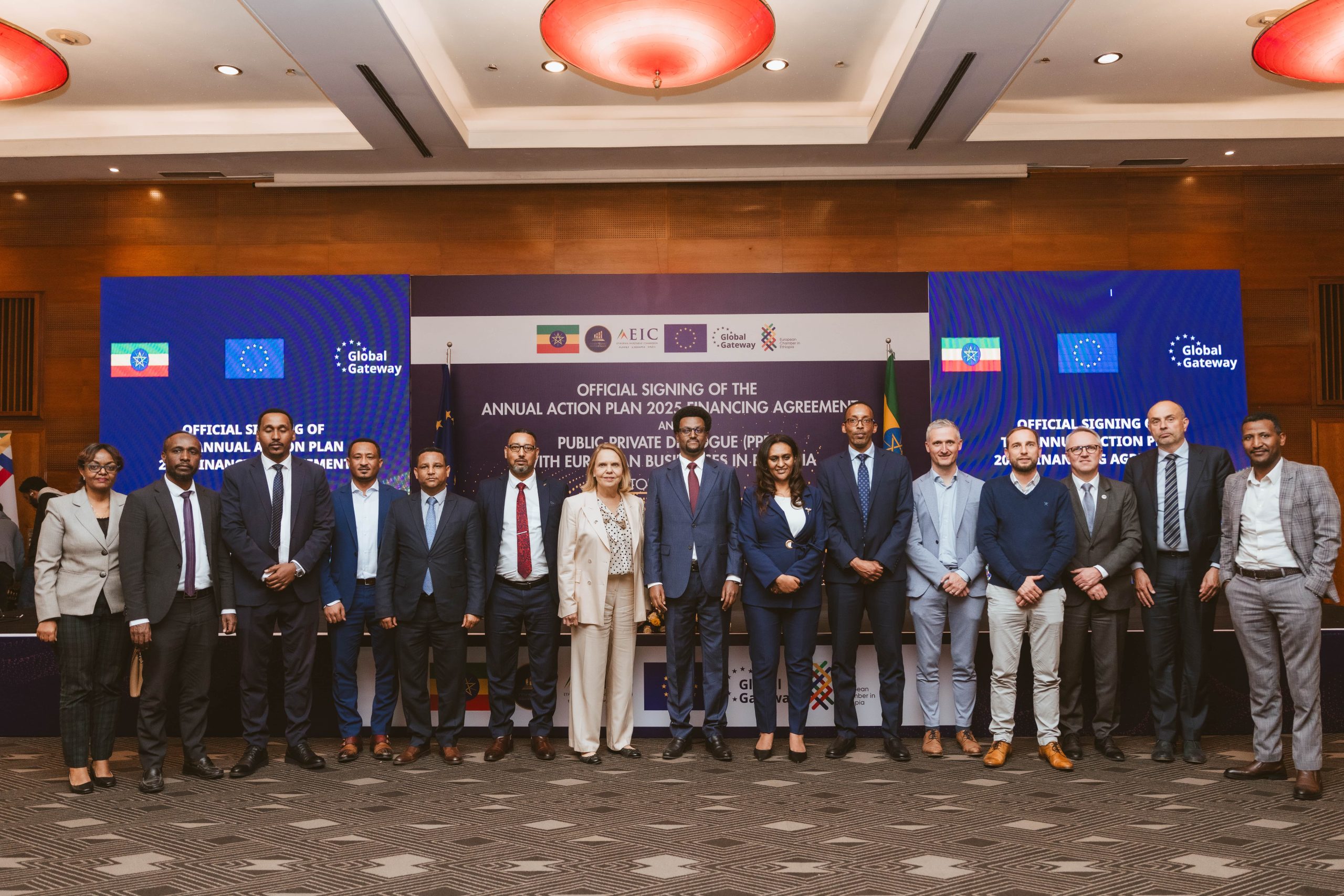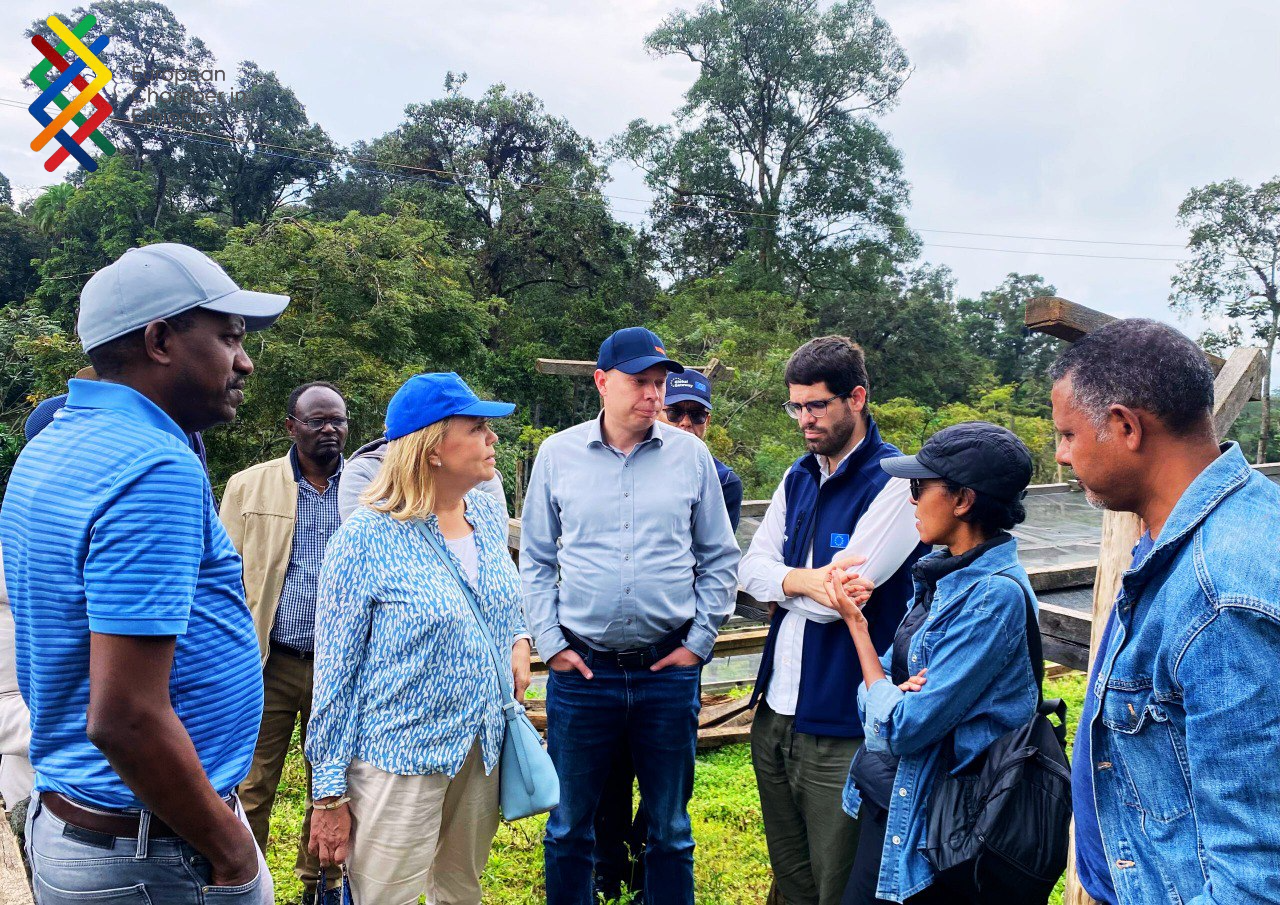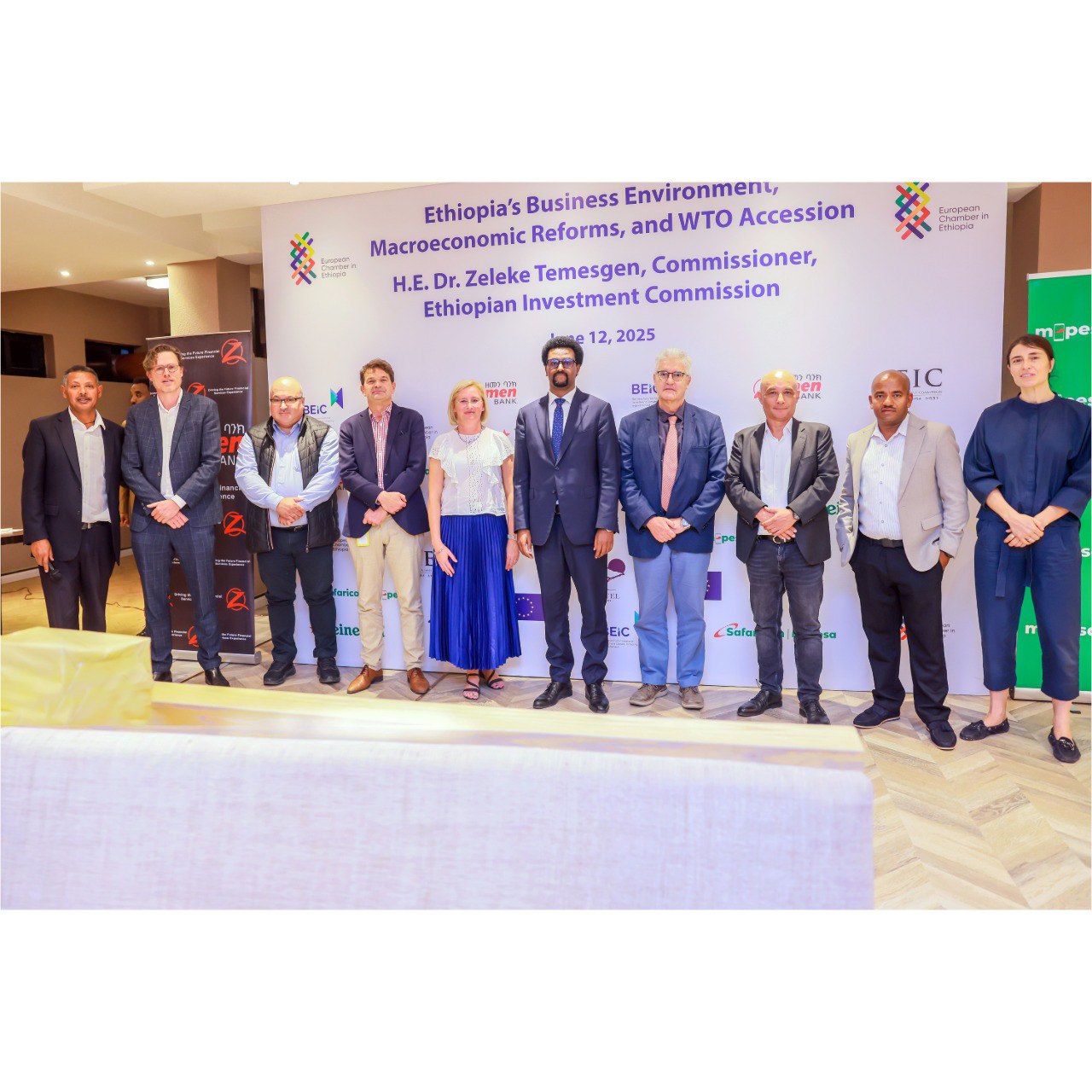
A Call for Comprehensive Solutions to Curb the Impact of EU Deforestation Regulation on EthiopianCoffee Farmers
Ethiopia’s rich coffee industry, predominantly fueled by the toil of over 5.8 million smallholder farmers, now faces a looming threat as the European Union’s Deforestation Regulation (EUDR) takes effect. This regulation, aimed at combating global deforestation, lays down stringent diligence requirements for commodities like coffee.
Introduced on June 29, 2023, the EUDR compels companies dealing in specified commodities to ensure their products are free from the taint of post-2020 deforestation or breaches of environmental laws. Non- compliant goods will face exclusion from the EU market starting December 30, 2024. Such a scenario poses a significant risk to Ethiopia’s coffee exports, which contribute a substantial 35% to its total export revenue.
In response, collaborative endeavors involving the European Chamber in Ethiopia (EuroCham), the EU Green Deal project team, and local stakeholders have been initiated to grapple with the implications of the EUDR. However, lingering concerns persist, particularly regarding the practicality of compliance for smallholder farmers.
A recent round table discussion hosted by EuroCham and European Coffee Buyers shed light on the mounting apprehensions among international buyers. The harsh penalties for non-compliance, which could amount to at least 4% of EU turnover, have served as a deterrent for importers contemplating engagement with Ethiopian exporters.
The hurdles in implementing the EUDR are multifaceted, with one of the significant challenges being the complexity of tracing coffee origins across Ethiopia’s extensive smallholder farming landscape. Though the Ethiopian government has put forth a compliance action plan, encompassing geo-location data collection, the feasibility of such measures remains uncertain.
Furthermore, the EUDR fails to provide adequate incentives for smallholder farmers, potentially driving them towards deforestation in pursuit of more lucrative crops, thus negating the regulation’s environmental objectives.
As discussions continue, the imminent threat to the livelihoods of Ethiopian coffee farmers underscores the urgent need for comprehensive solutions. Striking a balance between environmental conservation and the socioeconomic realities of coffee-producing communities is imperative in navigating these challenging times.
In light of this, calls for strategic foresightedness from the Ethiopian Coffee and Tea Authority in addressing the compliance challenge for the over 5.9 million smallholder farmers are becoming increasingly urgent. The time to act is now to safeguard the future of Ethiopia’s renowned coffee industry.
Bahru Temesgen/EuroCham
latest News
EU and EuroCham Sign Grant to Boost Ethiopia’s FDI competitiveness
November 22, 2025
EuroCham Networking Event Discusses New Income Tax Law
October 22, 2025
EuroCham Urges Reconsideration of EUDR Timeline
September 29, 2025
EuroCham Conducted Technical Discussions with Outgoing NBE Governor
September 17, 2025






